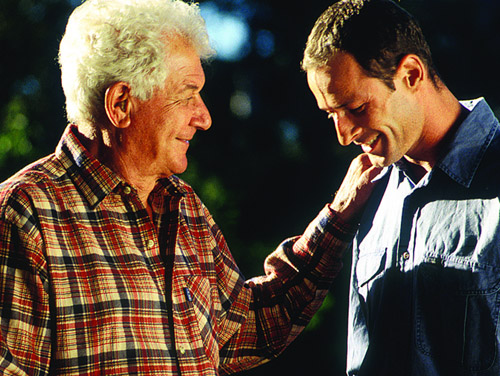 You’ve probably had this experience–perhaps recently. Or maybe you’re about to have it in the coming weeks. It might be at a holiday party or a family event or while traveling on a plane. You find yourself next to a stranger, and one of you strikes up a conversation–but before long, the awkward truth becomes all too clear:
You’ve probably had this experience–perhaps recently. Or maybe you’re about to have it in the coming weeks. It might be at a holiday party or a family event or while traveling on a plane. You find yourself next to a stranger, and one of you strikes up a conversation–but before long, the awkward truth becomes all too clear:
You have NOTHING in common!
HELP! What do you talk about? What do you DO?
Do you spend the rest of the five-hour flight quietly perusing the in-flight magazine? Do you excuse yourself and lock yourself in the restroom (whether you need to use it or not)? Or do you just just accept that you have nothing to talk about and, as politely as possible, move on to other potential conversationalists?
My advice is… none of the above.
I recommend that you try a novel approach: Rather than frantically search for some common ground, talk about the things you DON’T have in common.
Take a step out of your conversational comfort zone!
- Learn about the other person’s interests–even if they’re not your own (or especially if they’re not your own–you already know about your own interests!).
- Talk about a topic you don’t know much about–without pretending that you do! (This is where the art of asking questions becomes invaluable!)
- Try to see how someone else might be fascinated by a topic you generally find boring.
This doesn’t mean that you’ll necessarily share their enthusiasm or start seeing the world through someone else’s eyes. It just means that you’re willing to consider another person’s perspective.
This is how your world enlarges. This is how you become less parochial. This is how you realize that “it takes all kinds of people to make the world go around”–and that this diversity is part of what makes the world such a great place. You DON’T have to have common interests to find one another of interest.
In fact, wouldn’t it be boring if we ALL had the same interests, ideas, perspectives, and experiences? It would be like the Bob Dylan line: “It ain’t no use talkin’ to me, it’s just the same as talkin’ to you.”
Of course, I’m not suggesting that you suffer through someone being rude, obnoxious, or just plain asinine. However–assuming that a person is polite and genuine, and merely has very different perspectives and/or life experiences–you might miss out if you curtail a potential discussion simply because you don’t see eye-to-eye on every point.
If you’d like to give this approach a try, here are some mental games that might make it easier:
- Imagine that you’re interviewing them for a newspaper. Your job isn’t to judge–it’s just to get their story and their perspective.
- Pretend that they’re a fictional character–or a potential fictional character who you’re considering using in a novel you’re writing. What matters isn’t so much whether you share their perspective, but whether they’d make a good character.
- Imagine that you’re an anthropologist, doing your best to understand an unfamiliar subculture (such as accountants or model-plane aficionados).
Remember, you don’t necessarily have to become friends with everyone you meet. Nor do you have to develop an interest in their hobbies. (Half an hour of discussing stamp collecting might be enough to last you a lifetime!) It’s just a way to expose yourself to something different.
You can think of these conversations as mini vacations: You “travel” to a foreign land, where you encounter unfamiliar customs and/or styles (and/or interests, ideas, etc.). You do your best to understand and hopefully enjoy those who you meet.
But you (probably) don’t end up moving to this country. You’re just visiting.
At the end of the vacation, you come home. You return to what’s familiar, what you know and enjoy. But hopefully, you also see things a little differently. You appreciate what you have and what you do, while remembering that there’s a whole world out there–a world of different ideas, interests, perspectives, and experiences. A world that, in many ways, is very different from your own life.
But rather than seeing differences as “wrong” or threatening or even just boring, you can choose to see them as reminders of just how diverse the human population is–and what a wonderful blessing this is for all of us!

 During the Christmas season, people tend to talk (and sing) more about the voices of angels. Whether it’s singing a carol (such as “Angels We Have Heard on High” or “Hark! The Herald Angels Sing”) or complimenting an “angelic” choir, we imagine angels’ voices to be transcendently beautiful.
During the Christmas season, people tend to talk (and sing) more about the voices of angels. Whether it’s singing a carol (such as “Angels We Have Heard on High” or “Hark! The Herald Angels Sing”) or complimenting an “angelic” choir, we imagine angels’ voices to be transcendently beautiful.